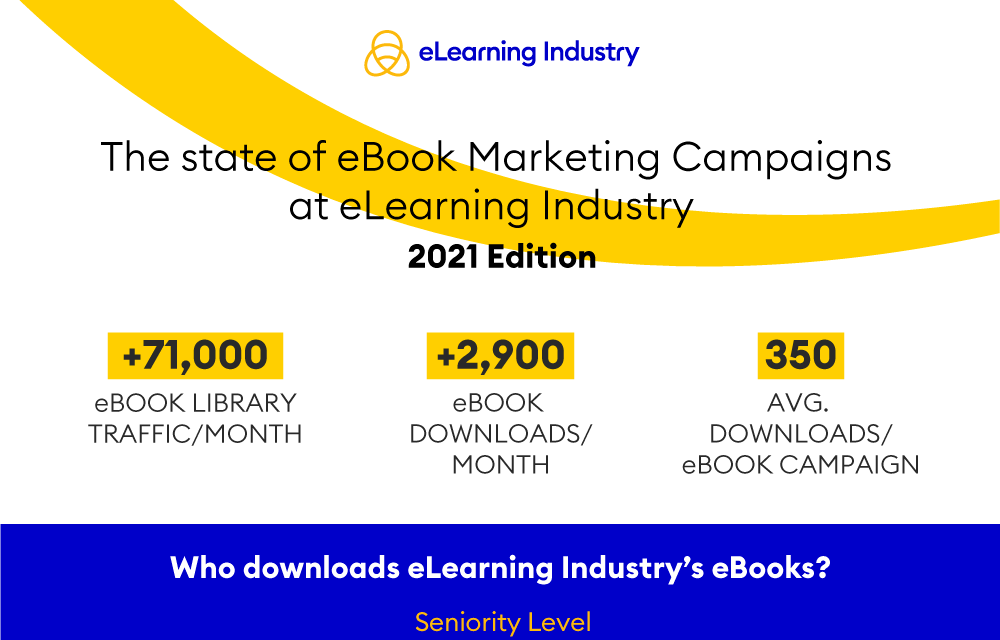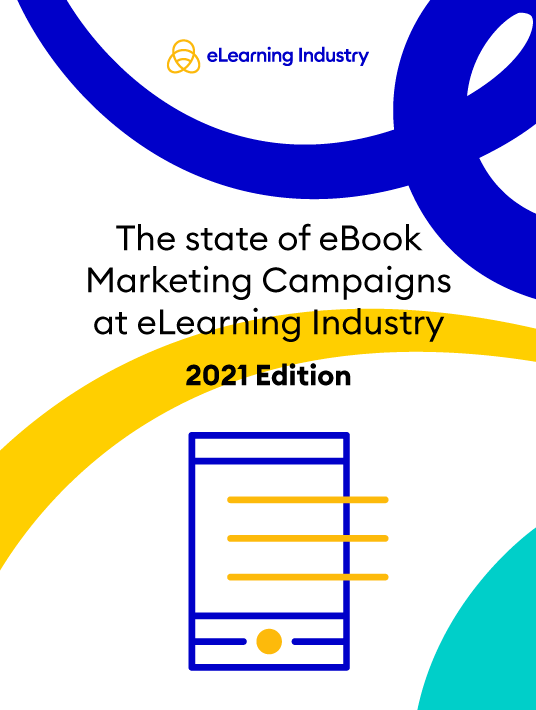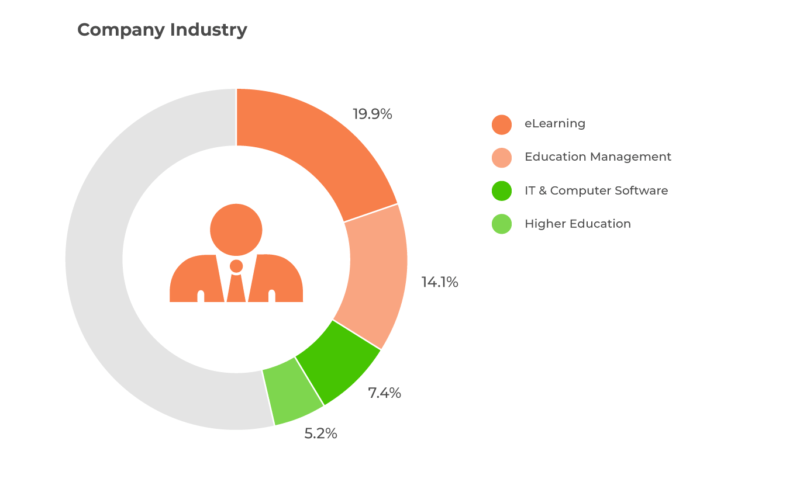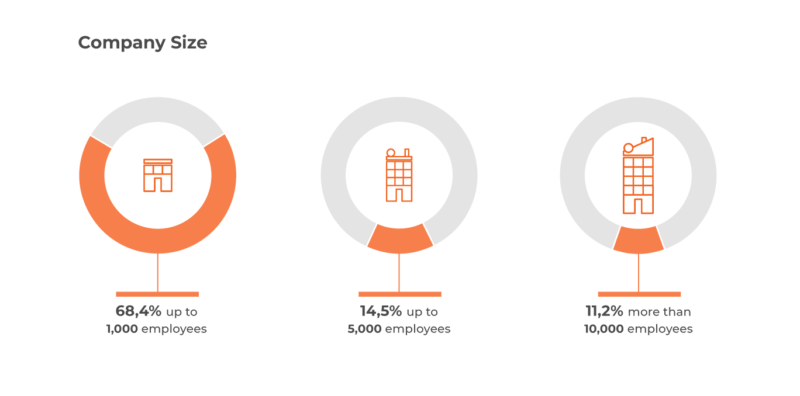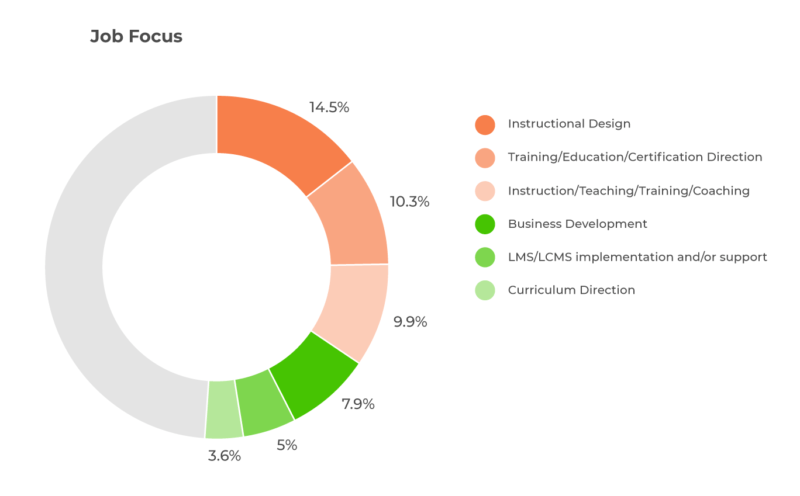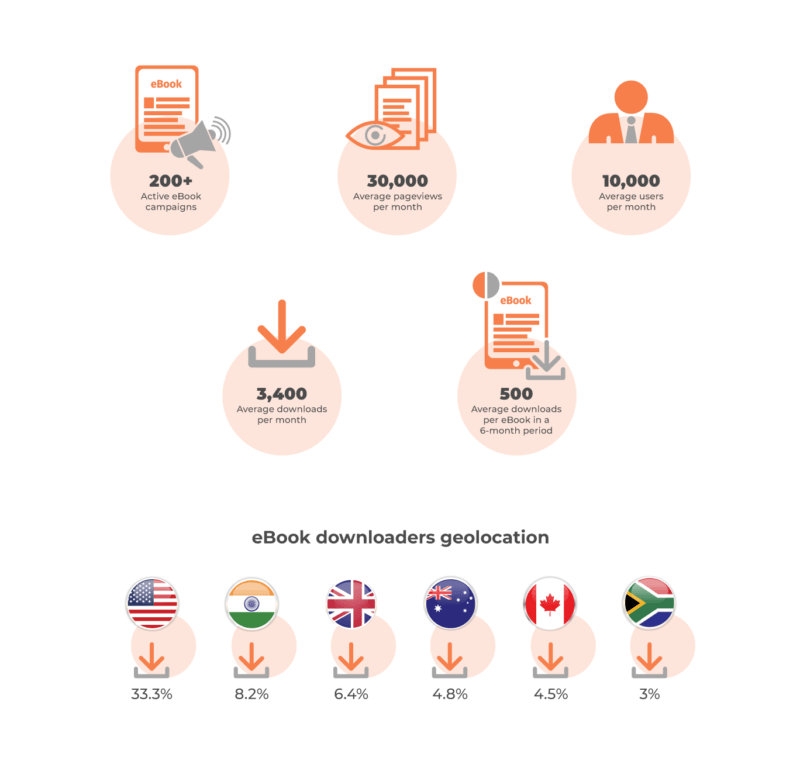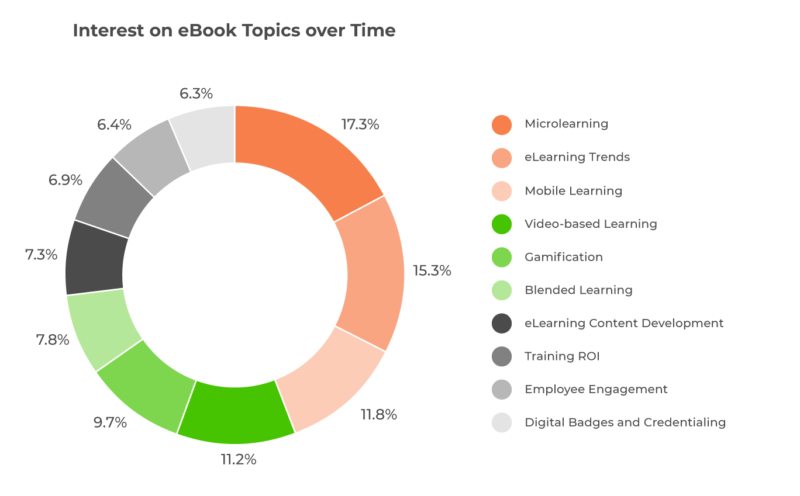In the chapters above, we talked a lot about how you can make your eBook work for your eLearning brand. How can you use it to boost sales? In which ways can it earn you a spate of leads? Most importantly, we analyzed how an eBook can help you establish yourself as a niche leader.
Hush! Looks like eBooks are marketing angels. But do the results come easy?
Not at all! All of this requires air-tight implementation. And as you may be busy handling other important business functions, a need for consulting an expert may occur.
To pick the right content marketing consultant, here’s everything you should know before reaching out.
What Is A Content Marketing Consultant And How Can They Help You?
For starters, a content marketing consultant is a person who develops a content marketing strategy. Some content marketing strategists focus on editorial calendars and lead you to the right content direction. Others might also be able to create specific search engine optimized content for your eLearning business.
As this person will be a professional, they’ll be able to come up with the right content strategy for your eBook. So, whether it is the structure, layout or the content that has to go in, everything will be spot on. A content marketing consultant will have a good approach for distributing your eBook after it’s completed. Most of these content marketing consultants are experts at creating actionable content.
Whether it’s about writing blogs, making videos, creating infographics, planning social media posts or even writing your paid ad copies, a content marketing consultant can do it all. It’s no wonder why the best eBooks are written by such content experts.
For a better understanding of how a content marketing consultant can be helpful, here’s an overview of what they handle:
- Help you develop a clear eBook strategy, with certain objectives and metrics
- Help you develop a clearer image of your current state, as well as where you stand in competition
- Contribute to aligning your eBook goals with your current state, priorities and future expectations
- Evaluate your resources and offer useful advice on how to allocate them at full potential for the best possible eBook performance
- Save your time from your eBook creation and marketing planning, which you can use to develop your product
- Mitigate mistakes caused by lack of experience
How To Prepare Before Reaching Out To A Consultant?
Content marketing consultants are professionals and work with clear ideas. Reaching out to a consultant with a blurred focus of your own eBook can backfire.
Solution? Prepare before you reach out.
Here’s a bunch of questions you must have the answers to before reaching out to a consultant.
1. What Are Your Business Goals?
The most important question regarding any marketing campaign is “What is the end goal?” And it makes sense. After all, how can someone succeed if their definition of success isn’t decided?
You get the point, right? Think about it. Think of all the things you want to achieve from this eBook. Be it sales, leads, brand awareness or any other action that can benefit your eLearning business for that matter.
It’s important as any content marketing consultant will only be able to help you if they know what you want to achieve from this.
2. What Product Do You Want To Promote With Your eBook?
The next thing that you must know before approaching a content marketing consultant is the product or service that you want to promote with your eBook.
Your eLearning business may have a number of products. One eBook cannot single-handedly promote all these. In this case, a niche-specific approach will be way more beneficial than anything else.
So, think about it. Make a decision about the product that you want to promote with this eBook of yours.
This will enable the consultant to craft a more personalized content strategy specifically suited for your target audience.
3. Who Are Your Competitors And Where Do You Stand In The Line-Up?
Competitor analysis is one of the most important parts of crafting any content strategy.
Whether for finding new keywords or new ideas in your niche, or just to be aware of everything else that’s going on in your niche, competitor analysis always pays off. However, for an analysis like this, it’s important to know who your competitors are and where you stand in this competition. For a content marketing consultant to help you outperform your competitors it is key to know who your competitors are. So, before deciding your content marketing strategy make sure you have enough intel about your competitors.
A content marketing consultant that is also an SEO expert will be able to assist you with your competition analysis. If not, you’ll have to research your competitors and do some keyword investigation on your own. Either way, this knowledge will make life way easier for you and your consultant.
4. Awareness Of Your SEO Practices
Talk of promoting textual content and you can’t go on without SEO.
Whether you create a blog post, a listicle or an eBook, Search Engine Optimization will always come in handy while promoting it. But, the first question is, how much do you know about your brand’s SEO practices? The consultant that you reach out to may ask questions like these. And moreover, it’s important for you to know about your brand’s SEO practices.
So, find out your current SEO standings. The number of keywords your website/blog is ranking for. How many organic eLearning visitors does your website enjoy per month, per week and per day? This will make the consultant aware of your current SEO standing so they know where to start from.
Remember: SEO + Content Marketing= Success.
So, consider it a bonus deal if your content marketing consultant knows all there is about SEO best practices.
5. Who Are Your Prospects? What Are Their Needs?
Do you know your eLearning prospects? Do you know who you want to sell your product to? Do you know whose needs your products will suit best?
Well, if you do, then good. If you don’t, find out now.
Any content marketing consultant will appreciate you more when you know about your prospects and their needs. That’s the thing that matters the most. And once you have an answer to such questions, you can actually craft products and services that your audience will fall in love with.
So, get on it. Find out who your eLearning prospects are and what their needs are.
Things To Consider While Choosing A Consultant Depending On Your Current State And Needs
Okay. So, you have made up your mind about hiring a content marketing consultant. But, how can you be sure that the consultant of your choice is your best bet?
Picking the wrong consultant can dramatically weigh down your eBook campaign. This is why it's important to make a wise choice. And to help you do that, we are mentioning a bunch of tips to keep in mind while choosing a content marketing consultant.
1. Do They Have The Right Experience?
Before you anticipate the meaning of “right” in the above question, let us redefine it. Any content marketing consultant you get in touch with will have some experience. But, what’s important is the relevant experience.
In the past, they might have worked on a number of eLearning businesses’ marketing campaigns. But were those businesses your size? Were they from the same niche as yours? Did they demand an eBook? Did this consultant succeed in adequately creating and promoting their eBook?
Asking yourself these questions will help you filter consultants that may be good for other businesses, but not yours.
2. Do Their Results Signify Work Quality?
In the world of internet marketing, everything is results-oriented. A marketer may speak hundreds and thousands of wise words. However, if they can’t reap results, they aren’t really winning.
Understand this. The marketing consultant you just reached out to may be highlighting the tales of their success. For your own good, don’t believe them until they present you with enough proof.
To make it even simpler, ask them for proof. Data matters. All marketers use metrics to track their campaigns’ performances. A successful marketer will be more than happy to share such results with new prospects.
Remember: Don’t invest until your satisfaction level is high enough.
3. Are They Reachable?
As you are going to make an investment, you will want your consultant to be available and reachable. This will keep you informed on the daily processes and progress regarding your eBook. However, if they aren’t available or reachable, they may not deliver the assigned work on time either.
So, make sure they are reachable. One fine way of doing that is by trusting only professionals with at least a website. And then, one that has a physical office space is the second factor that you can consider.
Apart from that, going through the testimonials (if available) can also save you. Most successful marketing consultants show off client reviews. Reach out to a content marketing professional who has digital proof of their worth.
Chapter Summary
eBooks are great tools for marketing an eLearning business. 100% true. But do these tools work on their own?
Making an eBook marketing campaign work wonders for your brand will require an air-tight implementation of various marketing techniques and content strategies.
eLearning business owners and managers may not have time for that. This is why hiring a content marketing consultant for your eBook is a good idea.


